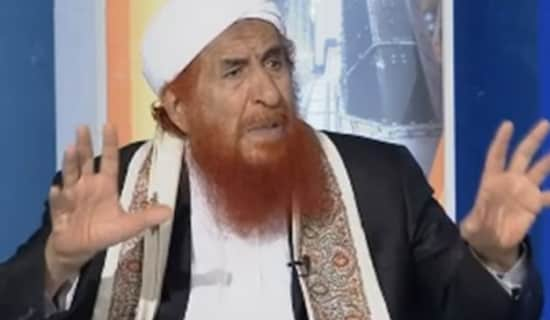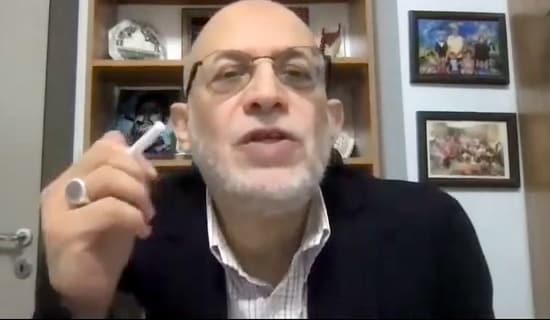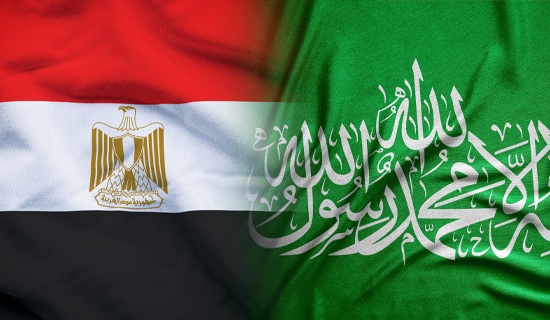On June 10, 2011, the liberal Arab website Elaph posted an article by Syrian oppositionist Ghassan Al-Muflih about Russia's support of the Syrian regime, titled "One Mafia Helps Another – Russia's Position on Syria."
The following is a translation of the article:
Russia Continues to Foster Mafia-Like Regimes that Were Its Allies in the Soviet Era
"While France, Britain and the U.S. are working in New York to persuade the [U.N.] Security Council members to pass a resolution condemning Damascus, the spokesman of the Russian foreign ministry has declared that Moscow is 'firmly opposed' to any such condemnation. He [explained] that this could make the situation in Syria even more dangerous, and that the Damascus regime needs more time in order to implement the reforms it has promised.
"This statement encapsulates the Russian position towards what is happening in Syria – the nonviolent revolution of the youth [in a demand for] freedom and dignity for our Syrian people – and towards the Syrian regime, which has once more revealed its true face in a way that cannot be undone. [This regime] is nothing but a family posse... But the fundamental question is why Russia chooses to take a stance in favor of murder.
"In the Cold War era, when the world was divided into East and West, each side naturally supported the countries in its own bloc, regardless of the character of their regimes. This was true both in the West and in the East. The Soviet Union was the leader of the eastern bloc. As everyone knows, issues of freedoms and human rights were not even part of its lexicon...
SUPPORT OUR WORK

"Countries no doubt have interests. But is it possible to regard the position of Russia, its prime minister, and its president [toward Syria as reflecting] the Russian interest?
"Looking at the Middle East, one notices that the Russians have tried to benefit from the remnants of old Soviet ties. They continued to support mafia-like regimes, such as the Syrian and Libyan regimes... [One must] realize that the politicians who ruled Russia in the interim period after Gorbachev and Yeltsin were either remnants of the Soviet intelligence [apparatus] or products of Russia's [rapid] transition to a market economy, which was largely a mafia economy...
"This gave rise to a political elite that takes a mafia-like approach to participation in the international arena. That is, it seeks political profit without any regard for moral, legal or diplomatic legitimacy.
"That is why [Russia] has maintained its ties with regimes like Syria and Libya. These [Russian] elites were supposed to reshape their international relations in accordance with the profound political and economic change that Russia had undergone. [Instead], their behavior has been characterized by [pursuit] of quick profits, as is customary with gangs, because terms like 'freedom of the peoples' and 'human rights' have not yet entered their lexicon.
"[So], in renewing their ties with the peoples of the region, how could they possibly take a different tack than the Soviets?"
"The Syrian People Will Never Forget this [Russian] Stance, Which Completely Disregards the Peoples"
"The only change that has occurred is that this mafia-like Russian elite has renewed its ties with Israel in a different way from the rest of the world. Both the elites and the [Russian] people have improved their relations with [this country], at the expense of the support for the Palestinians. That is the only change that has occurred in Russian policy since the collapse of the Soviet Union...
"Now that it has lost the stronghold of Al-Qadhafi's Libya, [Russia] is clinging to the gang in Damascus, which is its last stronghold [in the Middle East].
"The current Russian position is based on the position of many senior Israeli officials, who want the regime in Damascus [to survive]. It should be noted that the [Russian] position towards the revolutions in Tunisia and Egypt was almost neutral, because it does not enjoy a mafia-like influence in those countries.
"[Moreover], the private Russian arms manufacturers are seeking a market [for their products] amid global competition, but cannot find one. So they have reverted to the old method of [cultivating] ties with countries that purchase Russian weapons. The Russian mafia will never abandon this policy, until the West gives it a larger bribe than what [it gets] by cleaving to this [Syrian] regime that is murdering its own people.
"The Syrian people will never forget this [Russian] stance, which completely disregards the peoples. From this day forward, the Russians will have no foothold in the Middle East, at least not among the peoples..."




